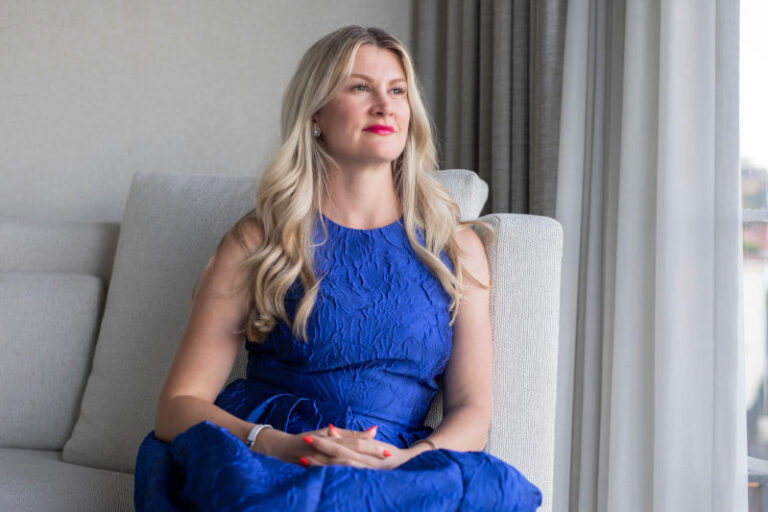
Yet just three years later, she quit her corporate executive role to found a startup. The unit she was leading at Siemens was heading in the right direction, but more slowly than she judged necessary. In her career, she has learned that ambition can have many dimensions. So does leadership. Real fulfilment in a career tends to be derived more from impact than status.
The startup, Claroty, founded in 2015, is a pioneer in cybersecurity solutions for critical infrastructure. If your power supply or critical supply chain is working, it may well be thanks to the systems Galina and her team have developed.
The early years of her career involved handling the technical integration of acquisitions in server provisioning and cloud computing for IBM, and direct experience in large-scale implementations, and what would later be called digital transformation. Throughout this experience, the susceptibility to cyber-attacks of automated systems was growing, alongside her concern at the delayed or patchwork nature of counter measures.
During her time at Siemens, the awareness grew of the vulnerability of critical systems, and the strategic importance of safeguarding them. “The world literally runs on critical infrastructure. And we were just getting into this new stage of the cybersecurity domain that cyber was extending to all these physical systems that did not really have that connectivity prior,” she says.
There is a challenge for IT professionals around mindset: it is natural for technology innovators to focus on the benefits, which are often transformative, of interconnected systems. This orientation is a strength that disguises a weakness, which is to underestimate the risks that technology can be manipulated for malicious purposes, and sometimes to fail to foresee the ways in which this can be done.
“Automation systems are perfectly engineered, and they work amazingly. They also work for an exceptionally long time, they’re in the field for 30, 40 years, which means they are always behind the curve on built-in security, so you have to be really careful how those systems connect to other systems … In order to know when you need to do predictive maintenance, for example on a multimillion dollar turbine, you need to have the analytics connected to the cloud, for the AI to do all the crunching of the data. For that to happen you need connectivity between the cloud and the manufacturing sites. That also means expanded attack surface if this connectivity is not secured properly.”
Claroty specializes in cybersecurity systems specifically tailored for critical infrastructure applications. It has grown to a global company, with over 500 employees, having raised US$635 million, serving hundreds of customers and protecting thousands of industrial sites around the world. She says:
“Given the pressures of the rapidly changing threat landscape, geopolitics and digital transformation, Claroty’s technology is a great example of transforming cybersecurity from a cost center to a competitive advantage.”
A high-flier since school, Galina gained a first-class degree in computer science from York University in Toronto, and the first six years of her career were spent at IBM, at the Software Group division responsible for server provisioning and later cloud technologies.
She excelled, and was given progressively greater responsibilities. Her managers were keen to retain and promote her, but she wanted to broaden her managerial experience, and gain a generalist qualification, namely an MBA. With six years of experience, the North American
MBA programs geared at those recently graduating from university seemed inappropriate, and her research identified IMD as the prime candidate.
She appreciated the practical focus at IMD, while the value of much of the personal leadership preparation, which she describes as “foundational”, often became apparent some years later, especially in disciplines such as self-awareness, and building a team.
“At IMD, everything is around the team dynamics. How do you work as part of the team? How do you lead the team? What is the feedback that you’re getting?”
To set up Claroty, she built a team first – strong on technical skills, with complementary abilities. As the business grew, she and her co-founders took the mature decision to move from operational management into strategic roles, and hire specialist C-suite executives with experience in scaling a global operation.
Her career is fueled by two passions: ensuring digital transformation is safe, and encouraging women to follow her example and lead fulfilling careers in tech. She is involved with many organizations and initiatives helping female founders level the playing field, such as All Raise’s Seed-to-A program. Only around 15% of funding goes to female founders, with the most probable explanations being ingrained, unconscious bias: “It has to do with the network effect, and you invest in people who look like you … this is a real challenge.”
If impact, rather than status, is the true test of a leader, Galina Antova already has a formidable legacy, and at a comparatively young age. There is much more impact to come.




